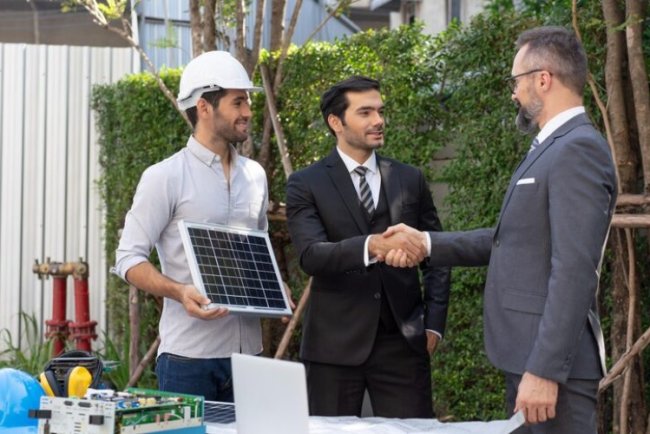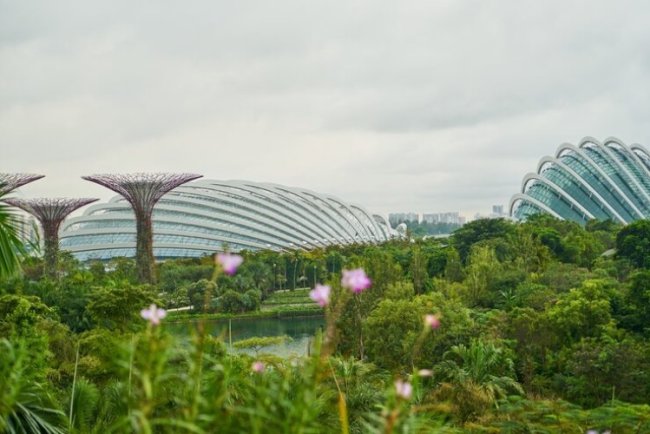Green Metro Systems Shaping Sustainable Urban Mobility
Green Metro Systems Conference highlights sustainable urban mobility, green tech, and renewable energy solutions.

On 18th February 2025, the 5th International Conference on Green Metro Systems – The Future of Urban Mobility was inaugurated in New Delhi, marking a significant milestone in India’s efforts to develop sustainable urban transit systems. Organized by the CII Indian Green Building Council (CII IGBC) in collaboration with the Delhi Metro Rail Corporation (DMRC), the conference highlighted the crucial role of eco-friendly metro systems in shaping the cities of tomorrow.
The conference brought together leading experts, policymakers, and innovators in sustainable transport to discuss advancements in green technology, infrastructure, and smart transit solutions. In line with the global push for sustainability, the event provided an ideal platform to explore strategies aimed at reducing carbon footprints, easing traffic congestion, and mitigating vehicular pollution. The discussions also emphasized enhancing urban living standards through cleaner, more efficient transport options.
The inaugural session was attended by several key figures, including Shri Manohar Lal, Union Minister of Housing and Urban Affairs & Power, Government of India; Shri Tokhan Sahu, Minister of State, Ministry of Housing and Urban Affairs, Government of India; Dr. Vikas Kumar, Managing Director of DMRC; Elisabeth Richter, Deputy Head of Economic Cooperation & Development at the German Embassy; and C Shekar Reddy, National Vice Chairman of CII IGBC, among others.
Shri Manohar Lal, in his address, emphasized the importance of balancing urban progress with environmental responsibility. He acknowledged the challenges posed by global temperature rise and pollution but also highlighted the efforts of the Delhi Metro in reducing environmental impact. He also touched upon India’s commitment to achieving net-zero emissions by 2070, aligning its growth with sustainability. The Minister underscored the need for energy efficiency and clean power, stressing the shift from thermal to renewable energy and the adoption of technologies like regenerative braking and vertical solar panels to pave the way for a greener future.
The conference saw the inauguration of India’s first vertical bi-facial solar plant installation on a metro viaduct, along with a 1MW rooftop solar power plant at Khyber Pass depot. The bi-facial panels, which capture sunlight from both sides, utilize the elevated metro structure for solar energy generation without occupying additional land. This innovative step aligns with the broader goal of making metro rail operations more sustainable and contributing to India’s renewable energy targets.
Dr. Vikas Kumar, Managing Director of DMRC, reaffirmed DMRC’s commitment to sustainable solutions, ranging from renewable energy integration to energy-efficient operations. He revealed that DMRC aims to have its metro network predominantly powered by renewable energy by 2030. The vision is to set a benchmark for sustainable urban transport while ensuring that metro systems remain at the heart of a cleaner, smarter, and more resilient future for India.
The role of metro rail corporations across India in enhancing green building practice is significant. Metros across cities like Bengaluru, Hyderabad, Jaipur, Kochi, and Pune have gained IGBC Certification for their sustainable design, energy-efficient usage, and resorting to the green material. DMRC, in particular, has taken the lead and linked solar power into a large proportion of its requirement. These initiatives are part of a larger movement to create energy-efficient, low-emission public transportation systems that reduce urban pollution and traffic congestion.
The CII IGBC’s Green MRTS Rating System, a comprehensive framework designed to assess the sustainability performance of metro rail systems in India, was also highlighted at the conference. This rating system evaluates metro projects based on multiple factors, including energy and water management, use of renewable energy sources, and overall environmental impact. It also focuses on enhancing the commuter experience and promoting seamless integration of metro stations with other modes of public transport, improving the efficiency of urban mobility.
Shri O H Pande, Chairman of the ICGMS 2025 and Director (Electrical) at DMRC, stressed that DMRC is not just a metro system but a leader in sustainable urban transport. He pointed to innovations such as rooftop solar initiatives and vertical bifacial solar plants, underscoring their potential to inspire cities across India to adopt sustainability as a guiding principle for future urban development.
Conference was also attended actively by Metro rail corporations from Bengaluru, Kochi, and UP. All of them were providing unique contributions towards sustainability in urban mobility. UP Metro Rail used driverless trains and advanced signaling systems, and Kochi Metro used solar power to run the operation. The Bengaluru Metro had integrated multiple modes of transport, buses, and suburban rail, in general.
Transit-oriented development policies were also discussed, highlighting their potential to monetize metro rail networks. By capitalizing on increased accessibility and demand around transit hubs, metro systems can spur mixed-use development and raise property values. These developments, in turn, offer opportunities for developers and investors, securing long-term financial sustainability for metro rail corporations while balancing public service with revenue generation.
Shri C Shekar Reddy, National Vice Chairman of CII IGBC, concluded the conference by emphasizing that sustainable metro systems go beyond just energy-efficient trains. He highlighted the importance of eco-friendly construction, renewable energy integration, and smart urban planning in creating metro networks that symbolize a greener, more resilient future for India.
The conference also included insightful panel discussions on topics such as decarbonization, green transit solutions, and enhancing energy efficiency in metro systems. Key presentations focused on emerging renewable trends, the role of technology in transforming metro systems, and India’s leadership in adopting environmentally responsible practices in urban mobility.
Overall, the 5th International Conference on Green Metro Systems underscored India’s commitment to creating a sustainable and resilient urban transport network. With the continued collaboration between government bodies, metro corporations, and industry leaders, India is set to lead the way in green urban mobility, ensuring a cleaner, healthier future for its citizens.
What's Your Reaction?

















